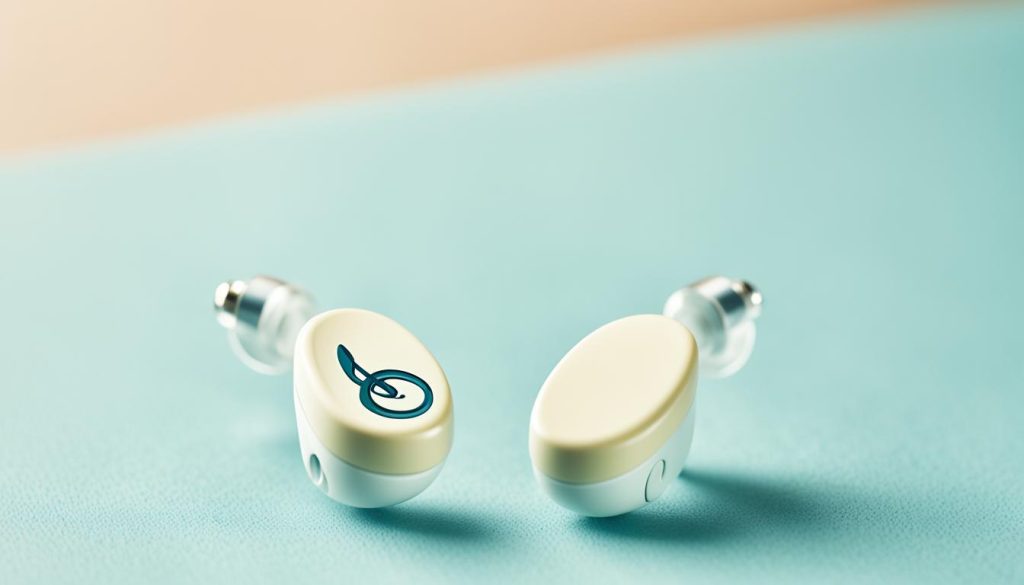Have you ever experienced a sudden ringing sensation in your ear that lasts for just a few seconds? If so, you’re not alone. This phenomenon, known as tinnitus, affects millions of people worldwide. In this article, we will explore the causes of this brief ear ringing and provide some helpful tips to manage it.
Tinnitus is characterized by the perception of sound in the ears without any external source. It can manifest as ringing, buzzing, hissing, roaring, whistling, swooshing, or clicking sounds. While tinnitus can be temporary and harmless, its underlying causes are varied and should be understood to address the issue effectively.
Causes of Tinnitus
Tinnitus, the sensation of hearing ringing or other sounds in the ears, can have various causes. Understanding these underlying factors is crucial in identifying and managing the condition.
The Mayo Clinic and Cleveland Clinic have outlined several potential causes of tinnitus:
- Hearing loss: Damage to the hair cells in the inner ear can lead to abnormal nerve signals that manifest as ringing sounds.
- Exposure to loud sounds: Prolonged exposure to loud noises, such as concerts or construction sites, can damage the delicate hair cells in the inner ear.
- Excessive ear wax: Build-up of ear wax can block the ear canal and result in a ringing sensation.
- Certain medications: Some medications, including antibiotics, antidepressants, and aspirin, may contribute to tinnitus.
- Head injuries: Traumatic head injuries can damage the auditory system and cause tinnitus.
- Dental issues: Dental problems, like temporomandibular joint (TMJ) disorders, can impact the inner ear and lead to tinnitus.
- Vitamin deficiencies: Certain vitamin deficiencies, such as vitamin B12 deficiency, have been associated with tinnitus.
- Underlying medical conditions: Conditions like Meniere’s disease, hypertension, and otosclerosis can cause or worsen tinnitus.
By understanding these potential causes, individuals experiencing tinnitus can seek appropriate treatment and management options. Identifying and addressing the underlying causes is essential in effectively addressing the condition and minimizing its impact on daily life.

What to Do About Tinnitus?
If you experience occasional tinnitus, there are several steps you can take to manage it. Here are some strategies and remedies that can provide relief from ear ringing and promote overall ear health:
- Consult an Audiologist: If your tinnitus is caused by hearing loss, seeking professional help from an audiologist is essential. They can assess your hearing and recommend appropriate solutions like hearing aids to improve your hearing function and reduce the awareness of tinnitus.
- Protect Your Ears: To prevent tinnitus caused by exposure to loud sounds, it’s crucial to wear hearing protection devices such as earplugs or earmuffs. This is especially important in noisy environments like concerts or construction sites.
- Address Ear Wax Buildup: Excessive ear wax can lead to a ringing sensation in the ears. If you suspect ear wax may be the culprit, it’s best to have it removed by a doctor to alleviate the symptoms.
- Consult a Healthcare Provider: If certain medications or underlying medical conditions are causing your tinnitus, it’s essential to consult with a doctor. They can evaluate your condition and provide appropriate treatment options or adjust medications as needed.
- Relaxation Techniques: Some individuals find relief from tinnitus by practicing relaxation techniques such as deep breathing, yoga, or meditation. These techniques can help reduce stress and anxiety, which can exacerbate tinnitus symptoms.
- Improve Sleep Patterns: Getting enough sleep and maintaining a regular sleep schedule can have a positive impact on tinnitus. Poor sleep can worsen tinnitus symptoms, so it’s important to establish healthy sleep habits.
- Join Support Groups: Connecting with others who are also experiencing tinnitus can provide emotional support and helpful coping strategies. Support groups or online forums can be valuable resources for sharing experiences and finding comfort.
If your tinnitus persists or significantly affects your daily life, it’s advisable to seek medical help. Remember, everyone’s experience with tinnitus is unique, and what works for one person may not work for another. Consulting with healthcare professionals and exploring different solutions can help you find relief and manage ear ringing effectively.
The Role of Hearing Aids in Treating Tinnitus
For individuals with tinnitus and hearing loss, hearing aids can be a helpful treatment option. Hearing aids not only improve hearing function but can also minimize the perception of tinnitus. By amplifying external sounds, hearing aids can provide distraction from the ringing in the ears and promote better overall hearing health. It is recommended to consult with an audiologist to discuss hearing aid options and find the best solution for managing tinnitus.

| Hearing Aid Brand | Tinnitus Relief Rating |
|---|---|
| Brand A | 5/5 |
| Brand B | 4/5 |
| Brand C | 3/5 |
Conclusion
If you experience occasional ringing in the ears for a few seconds, it is usually harmless. However, persistent or bothersome tinnitus should be evaluated by a healthcare professional. By understanding the potential causes of tinnitus and implementing preventative measures, such as protecting your ears from loud sounds and managing underlying health conditions, you can help reduce the frequency and severity of tinnitus episodes.
For individuals with tinnitus and hearing loss, hearing aids can provide relief by improving overall hearing function. These devices not only enhance your ability to hear but can also minimize the perception of tinnitus. By amplifying external sounds, hearing aids can provide distraction from the ringing in your ears and improve your overall quality of life. If you are experiencing symptoms of tinnitus, it is essential to consult with a healthcare provider for proper evaluation and personalized treatment options.
Remember, taking care of your ear health is crucial in managing tinnitus. Be proactive in protecting your ears, following healthy habits, and seeking professional advice when needed. With the right approach, relief from ear ringing is possible, allowing you to enjoy life to the fullest.




